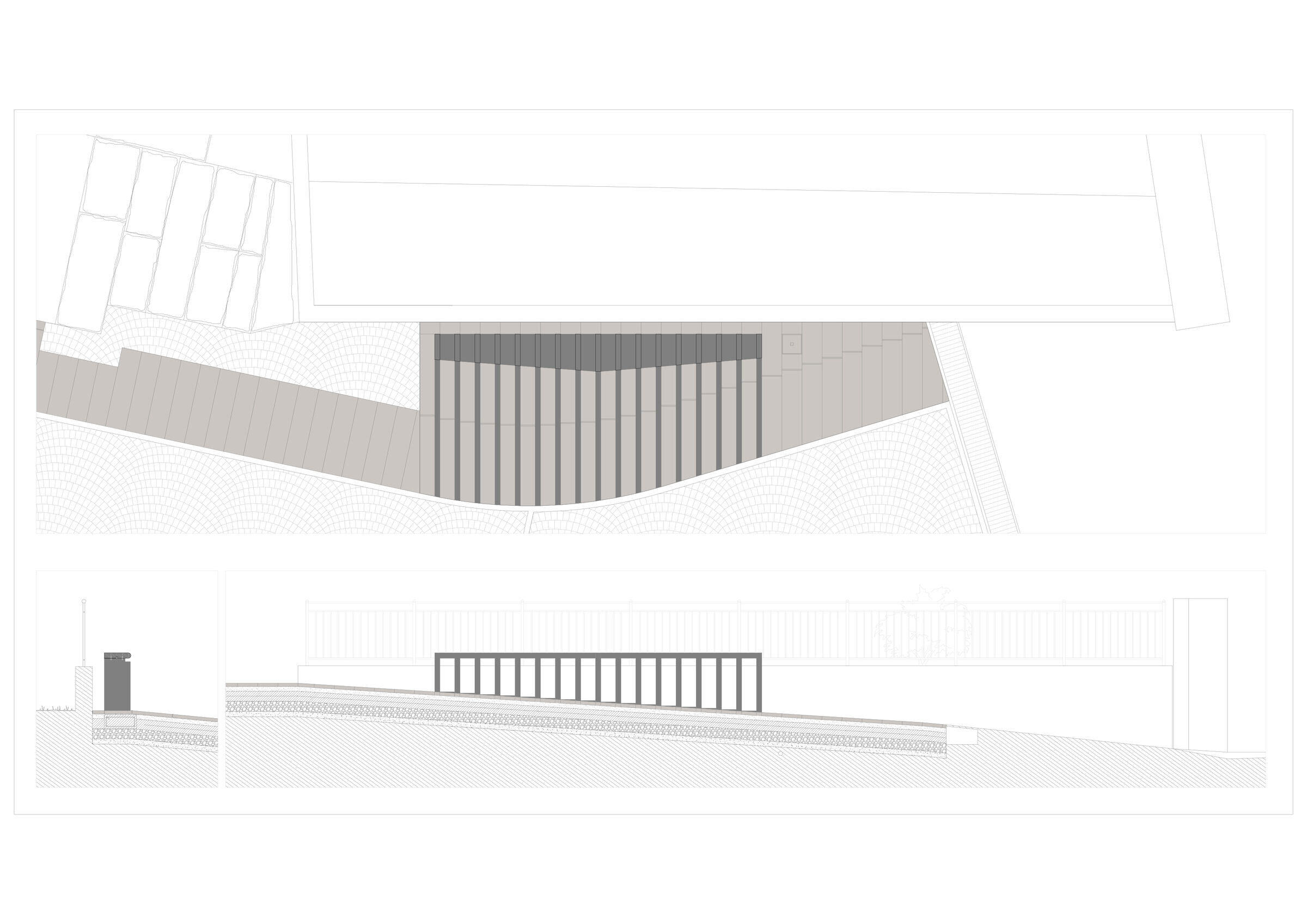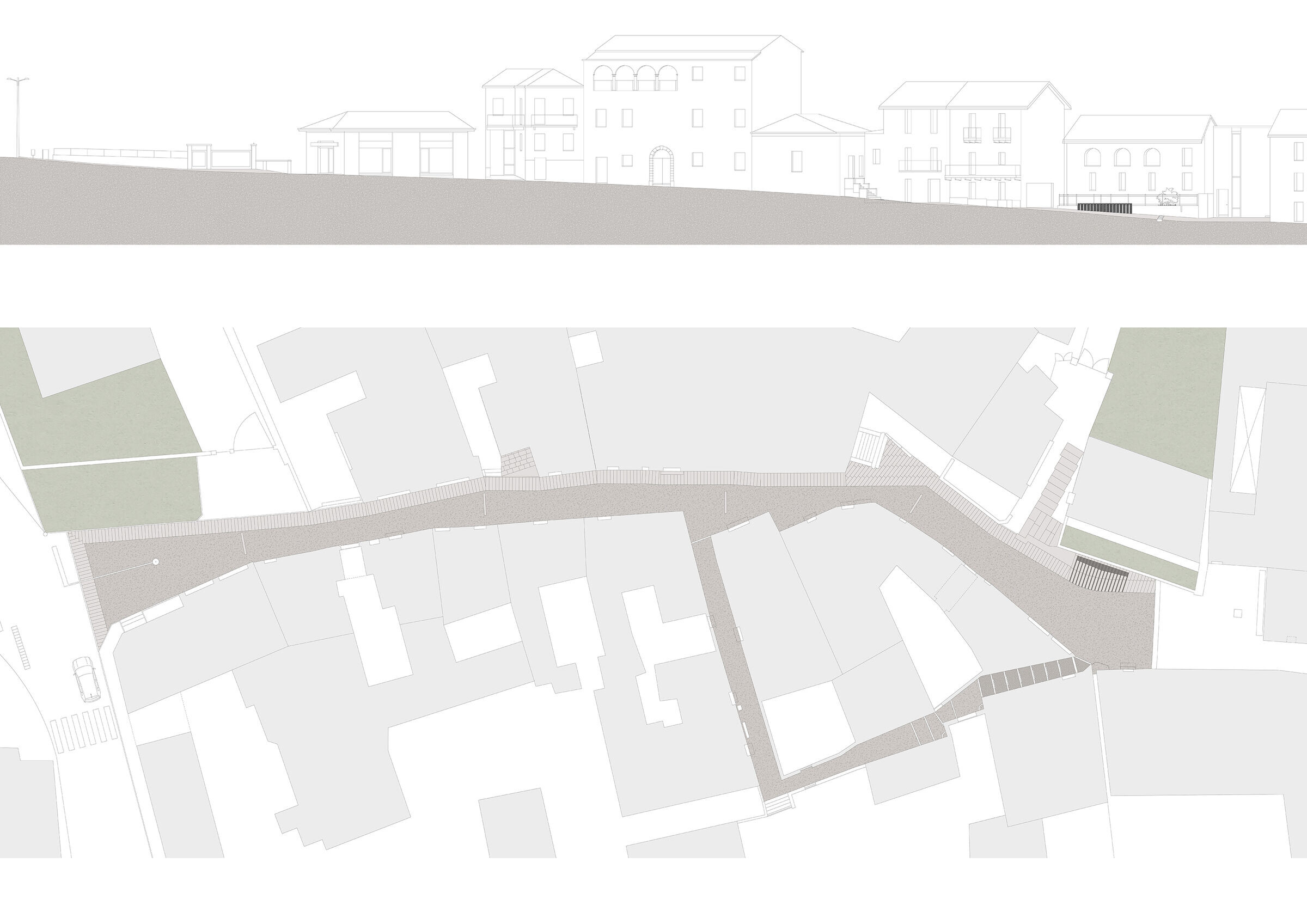Via Roma in Pella is a small but outstanding village on the western shore of Lake Orta. Paving Pella's historic streets today means caring for them by preserving their collective histories and at the same time accomodating current uses by donating accessibility that respects everyone. The project emphasizes the historic sequence of close facades that like stage wings precede the final view of the lake.
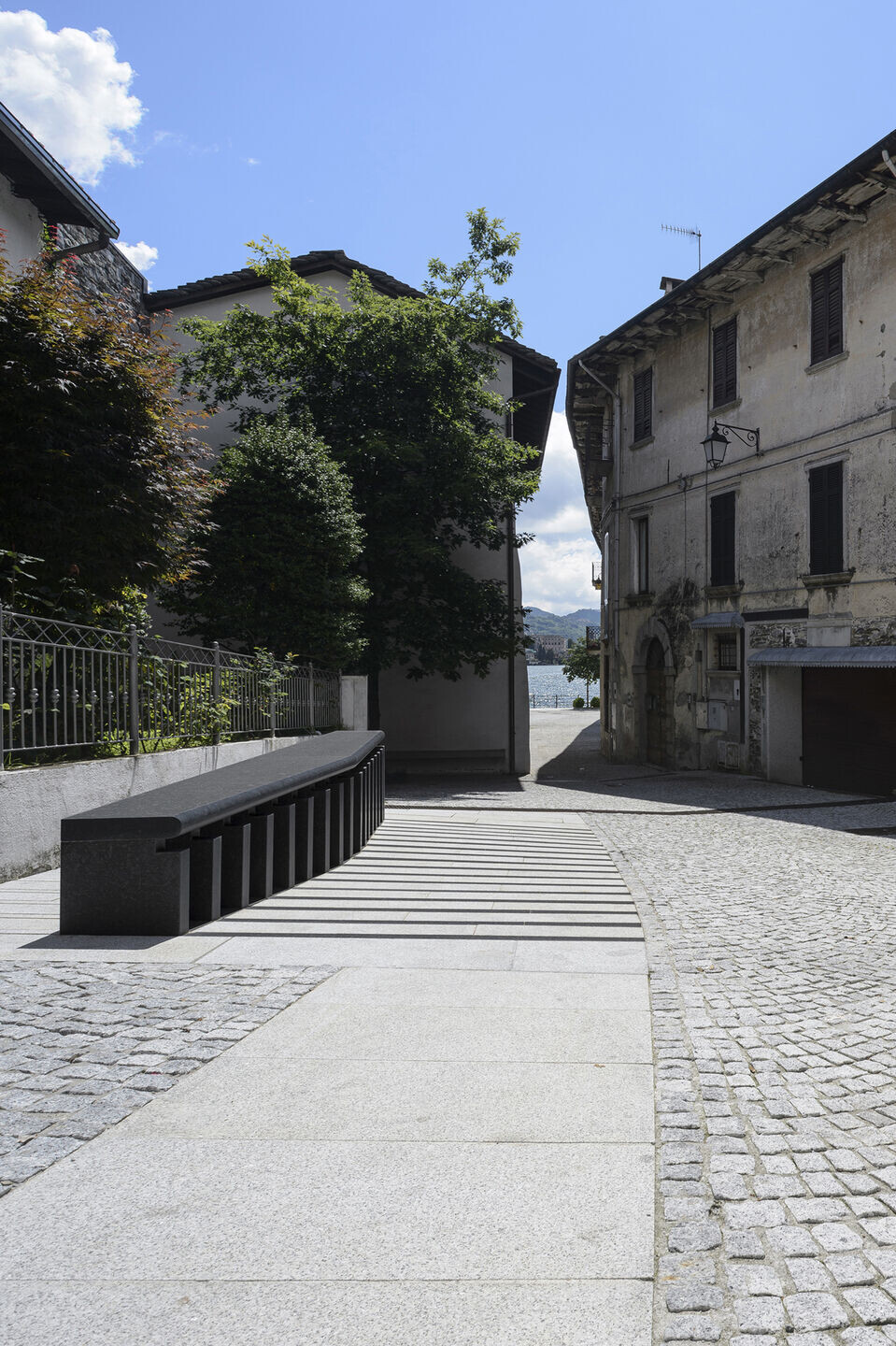
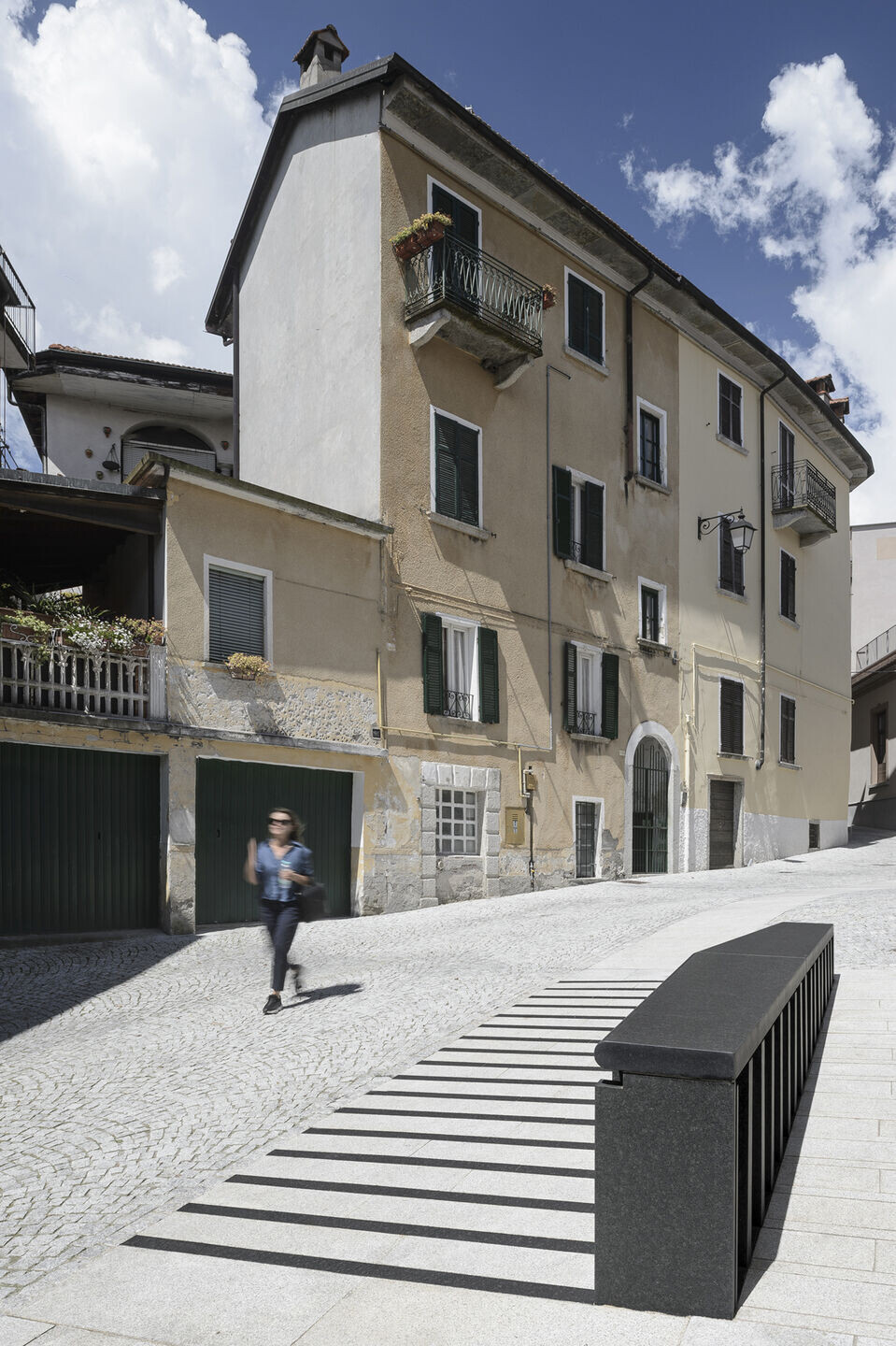
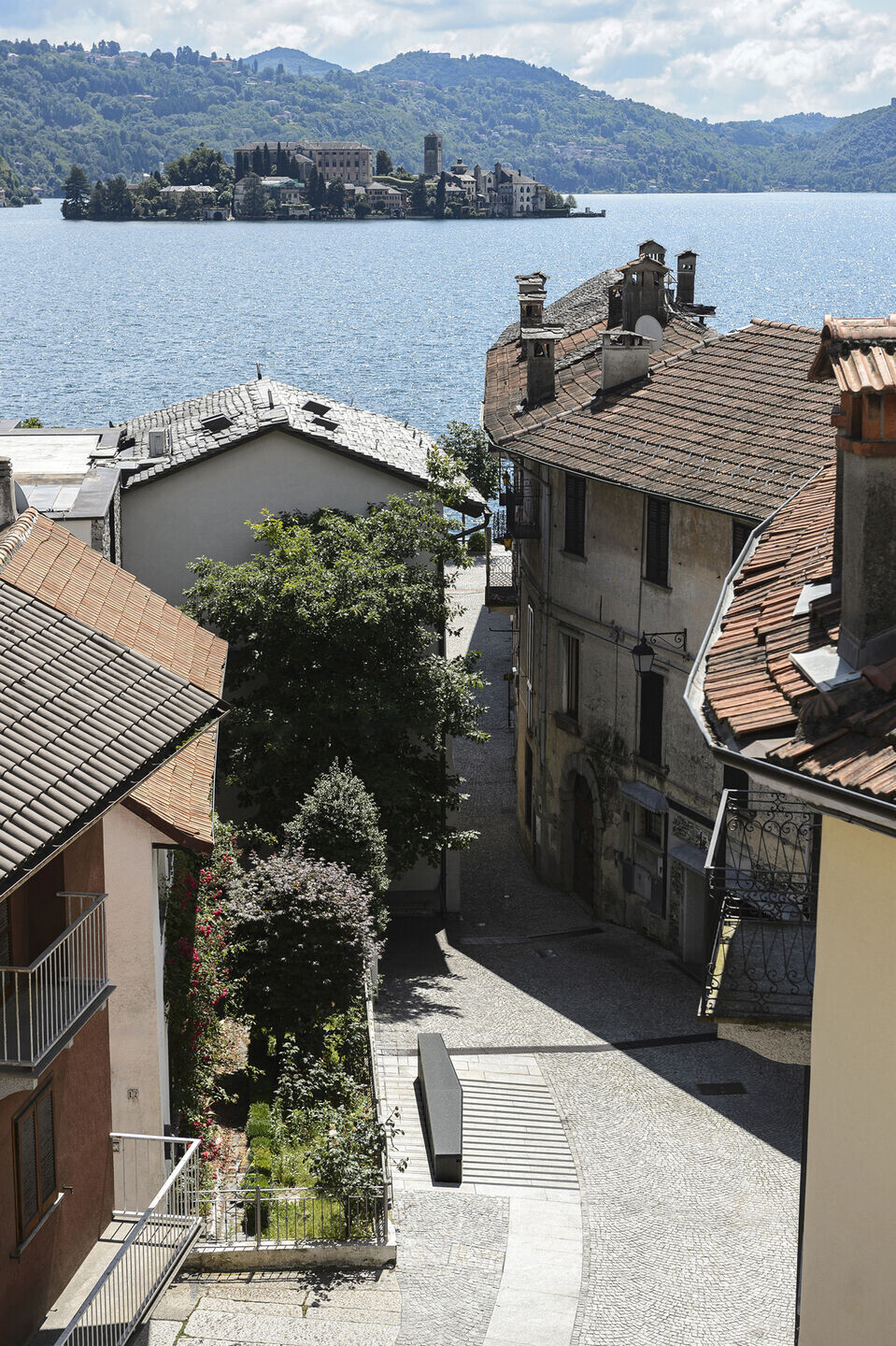
To do this it uses a few measured gestures and, in fact, a single material, the local white granite of Montorfano declined in cubes and slabs aranged in the classical manner with opposing arches. So, on the south side a mat of 6/8 cm cubes adapts to every irregurlarity accepting the insertion of networked utilities and their manholes, culverts and sumps. On the north side runs in continuity a long ribbon paved with 100x50x15 cm bloks following every variation in the lay of the existing buildings.
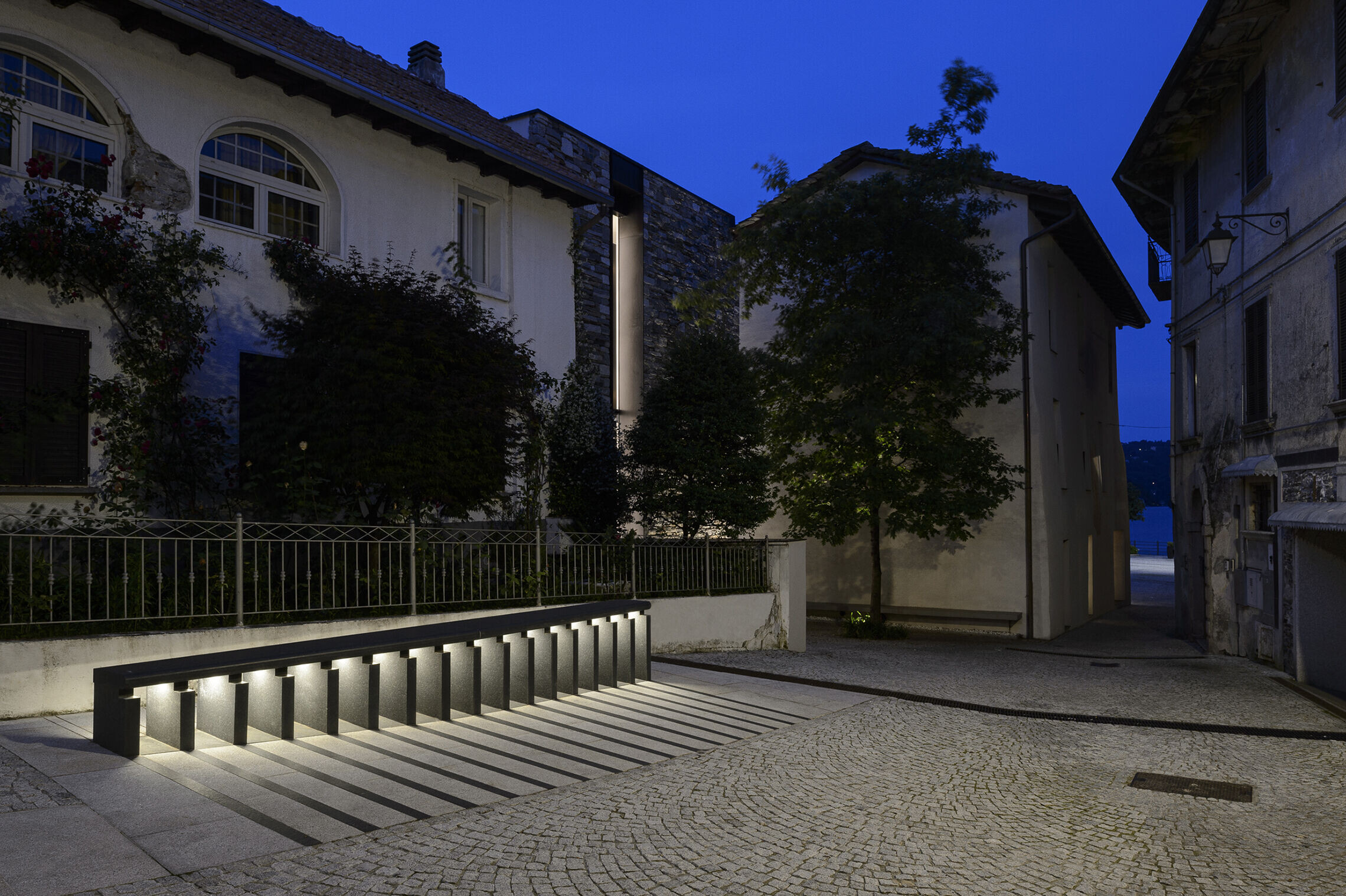
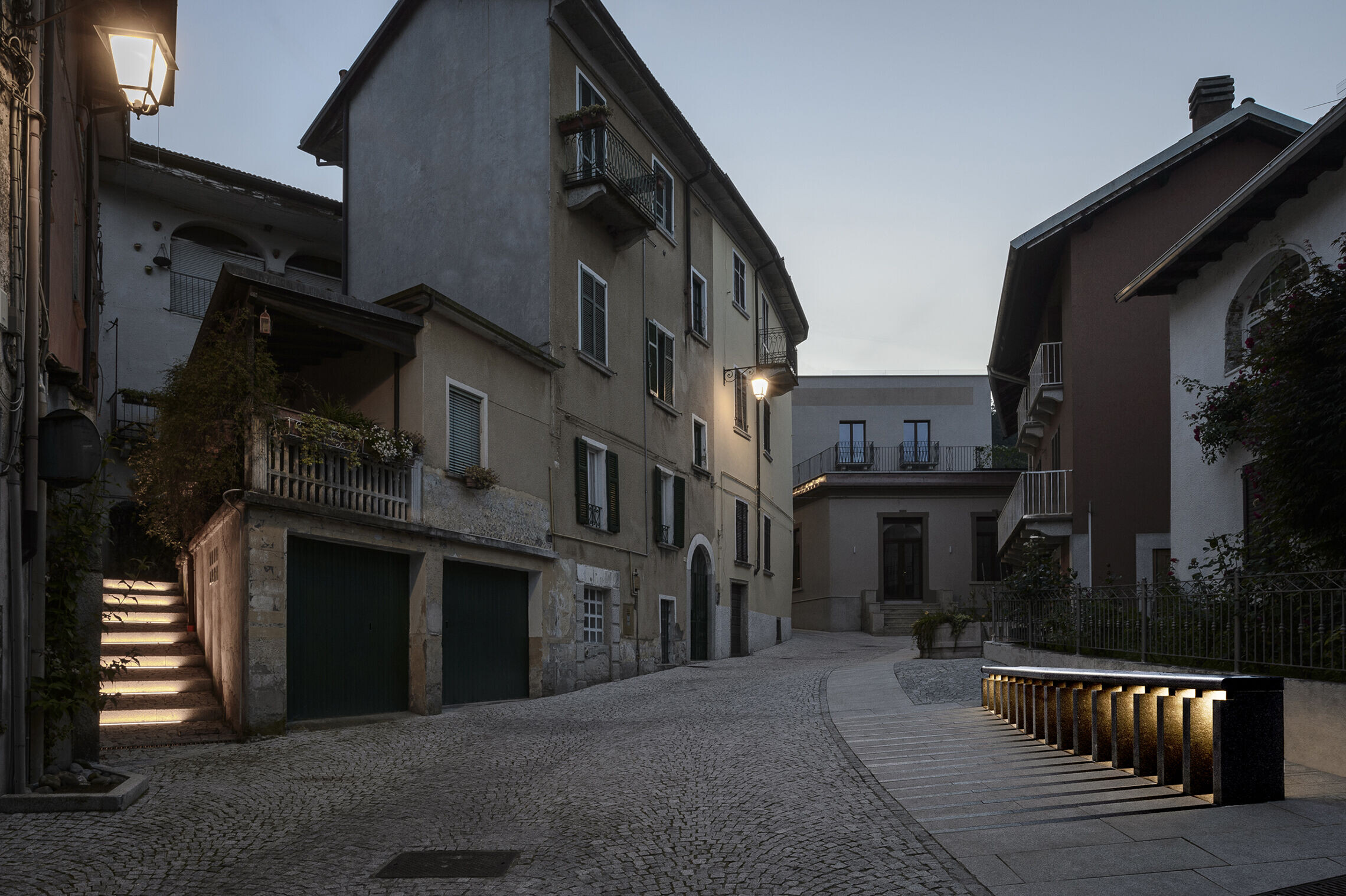
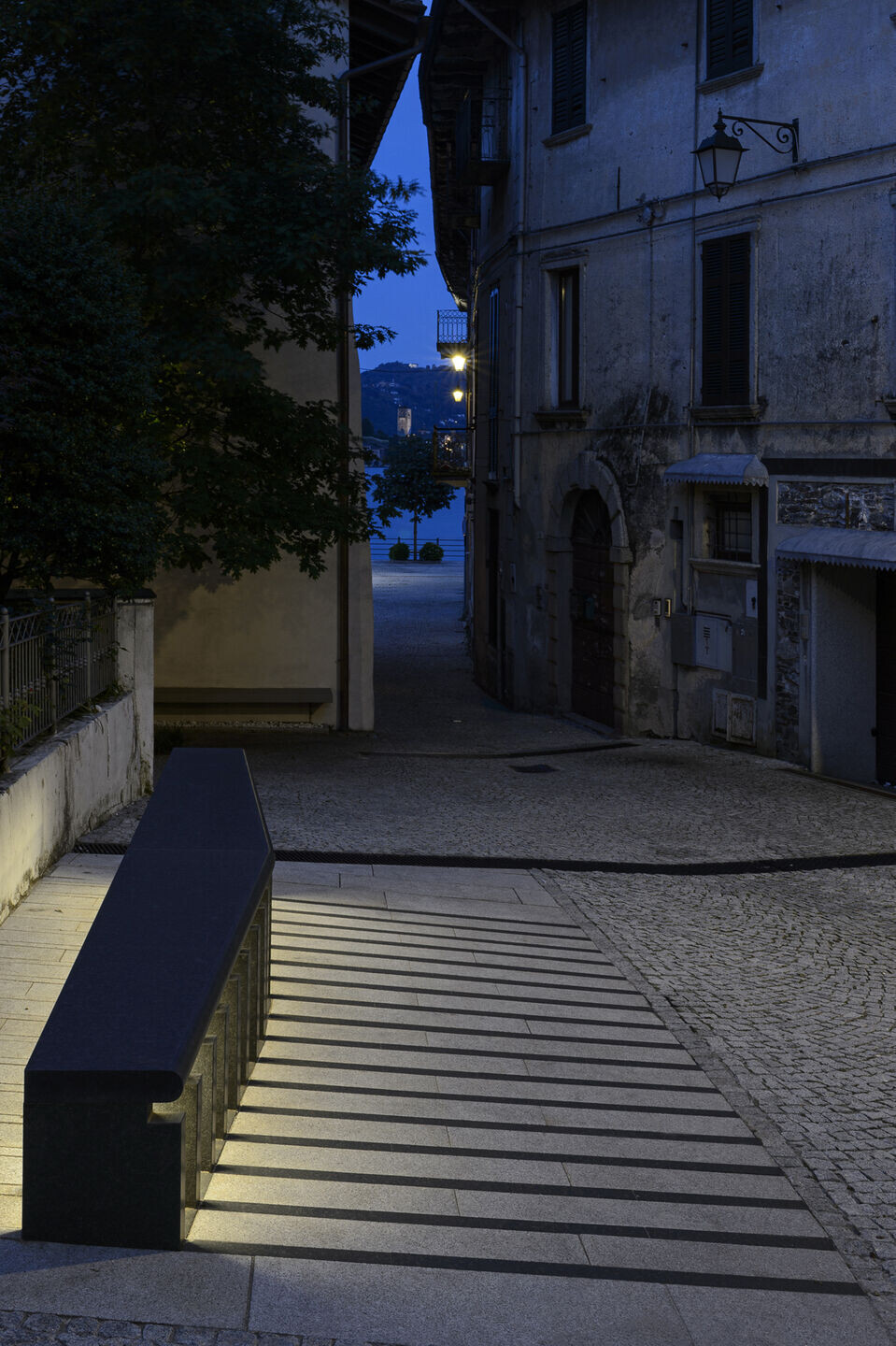
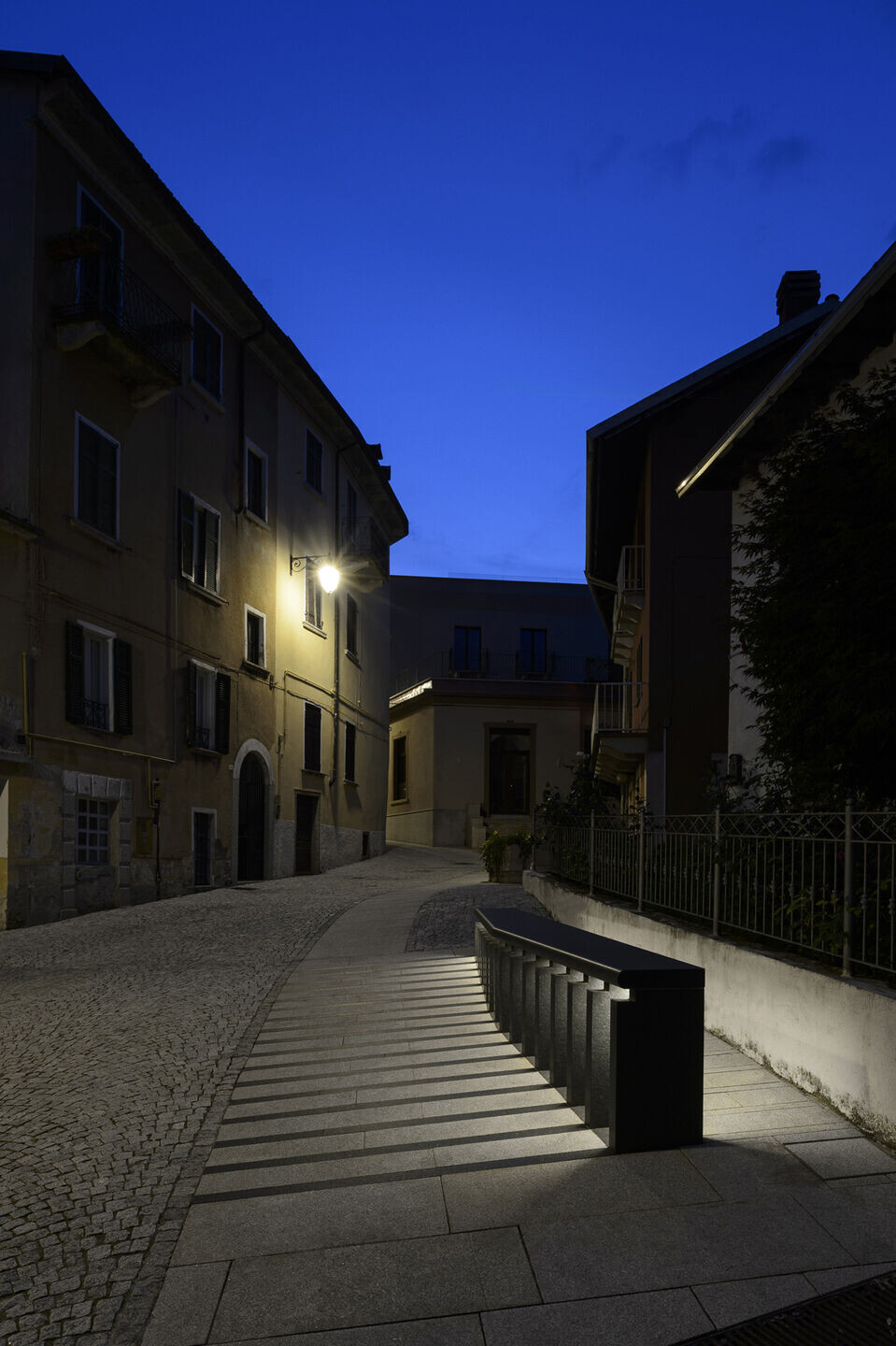
The ribbon ends toward the lake, at a widening of the street, with a linear seat made of black granite reminescent of the ancient "nero di Anzola" (black diorite). This is clearly a chromatic exception and also the only relief object in the project. The artifact recalls, by abstracting it, a structure of a boat of about 6 meters with dense sequence of ribs (ordinates or uprights) 8 cm thick on wich rests a large slab (bridge) worked toward the center of the street space with a torus molding, recalling the "gunwale"of boats (upper edge of the baot-hull).
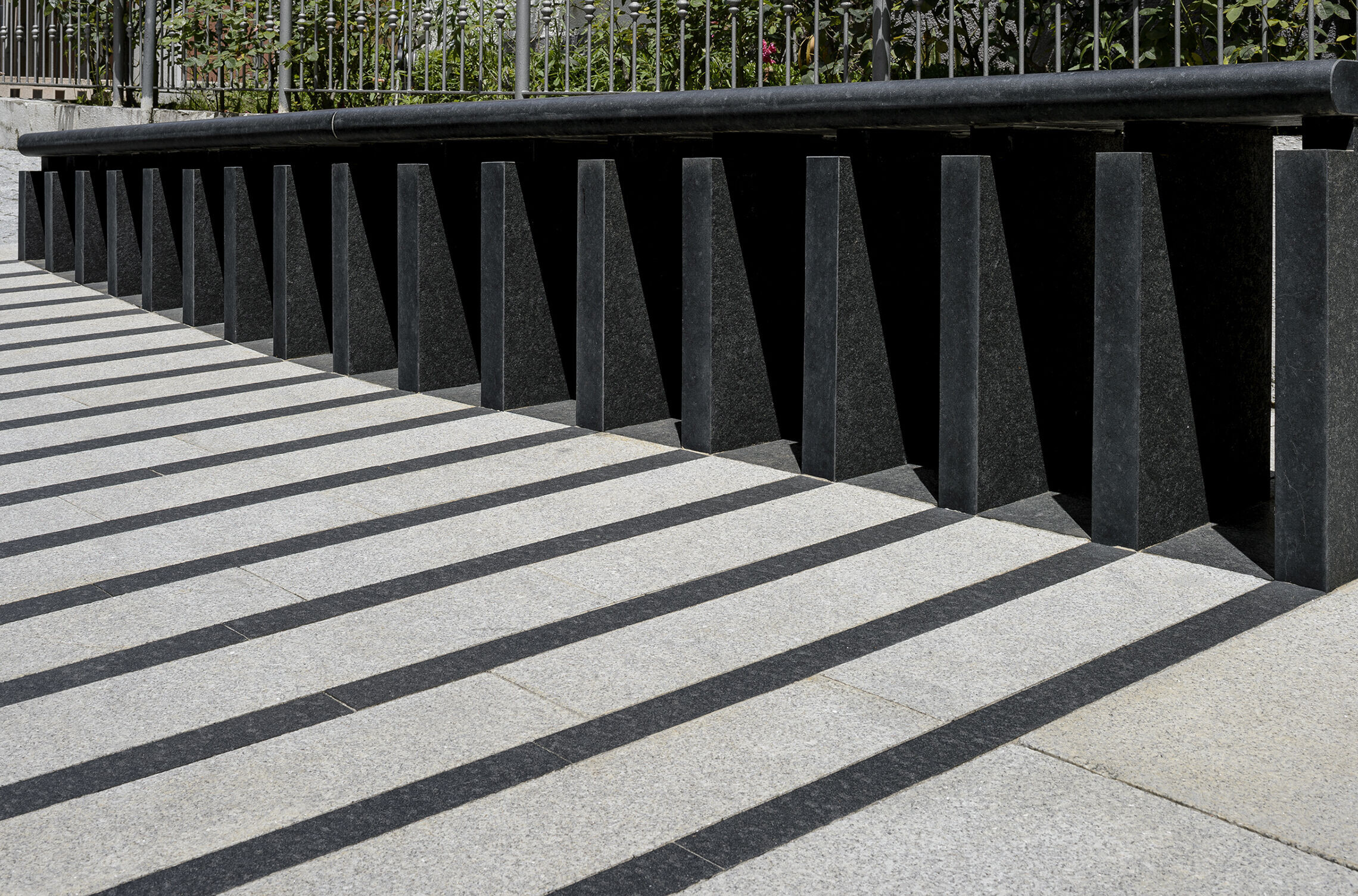
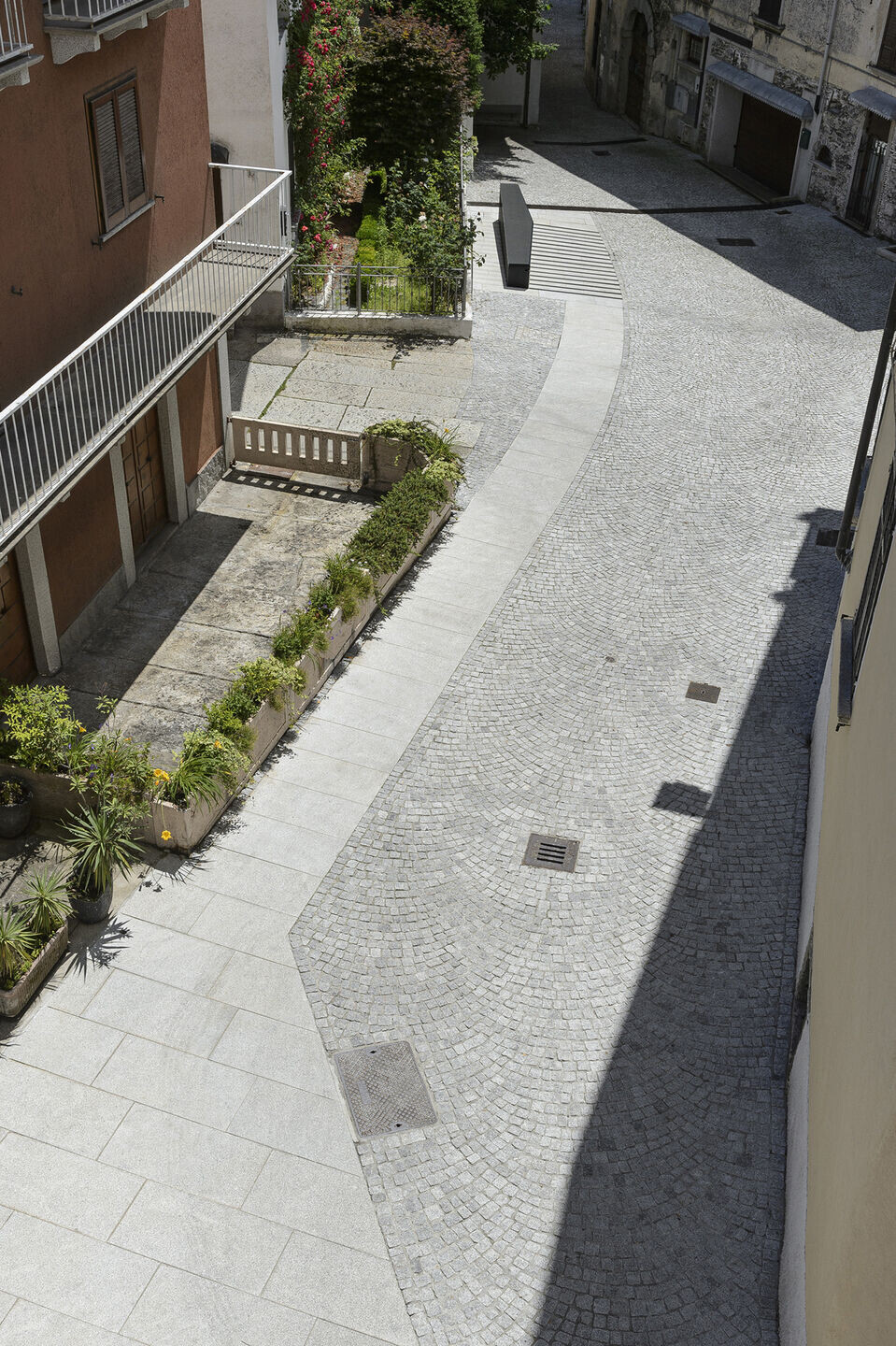
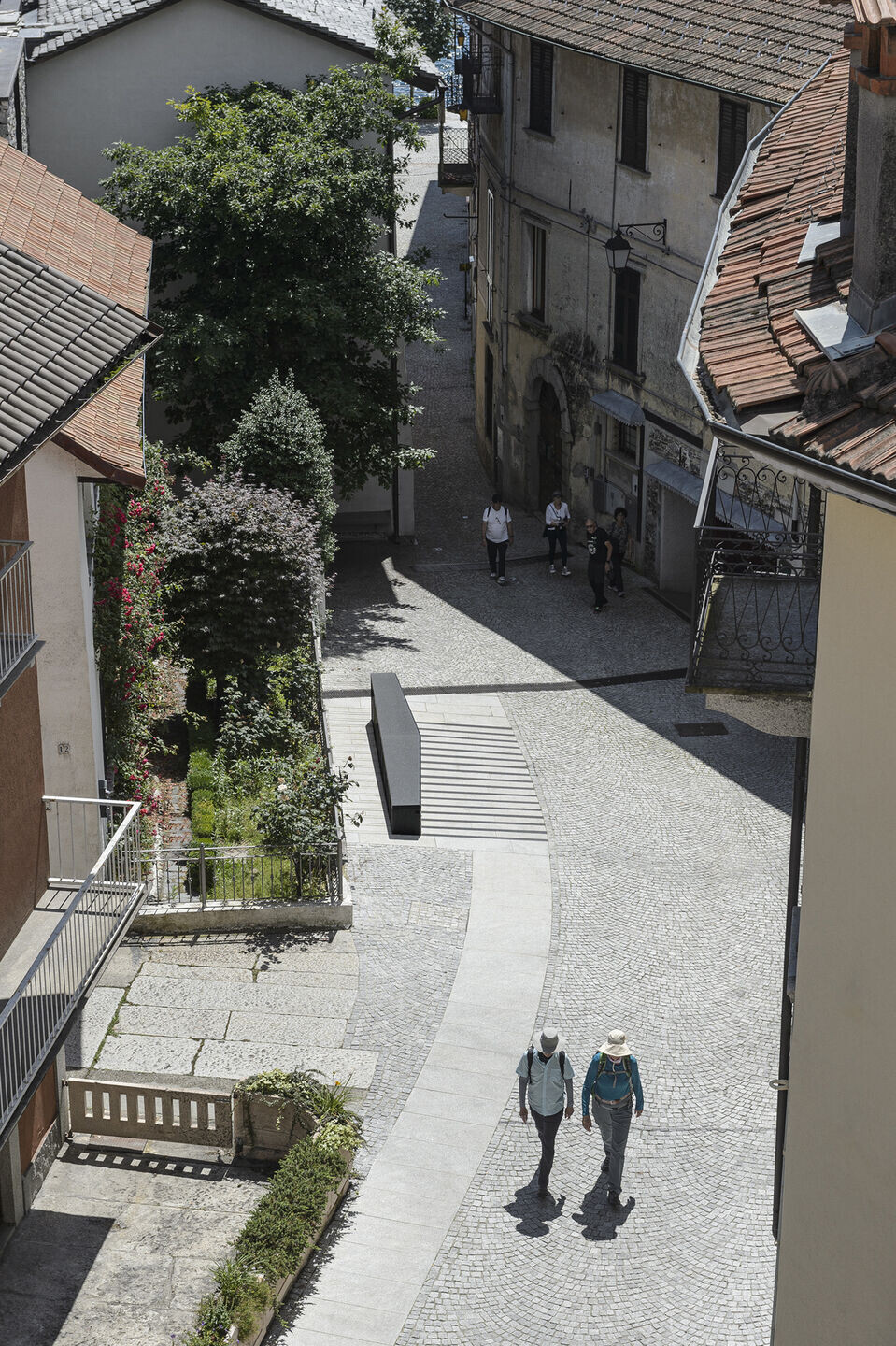
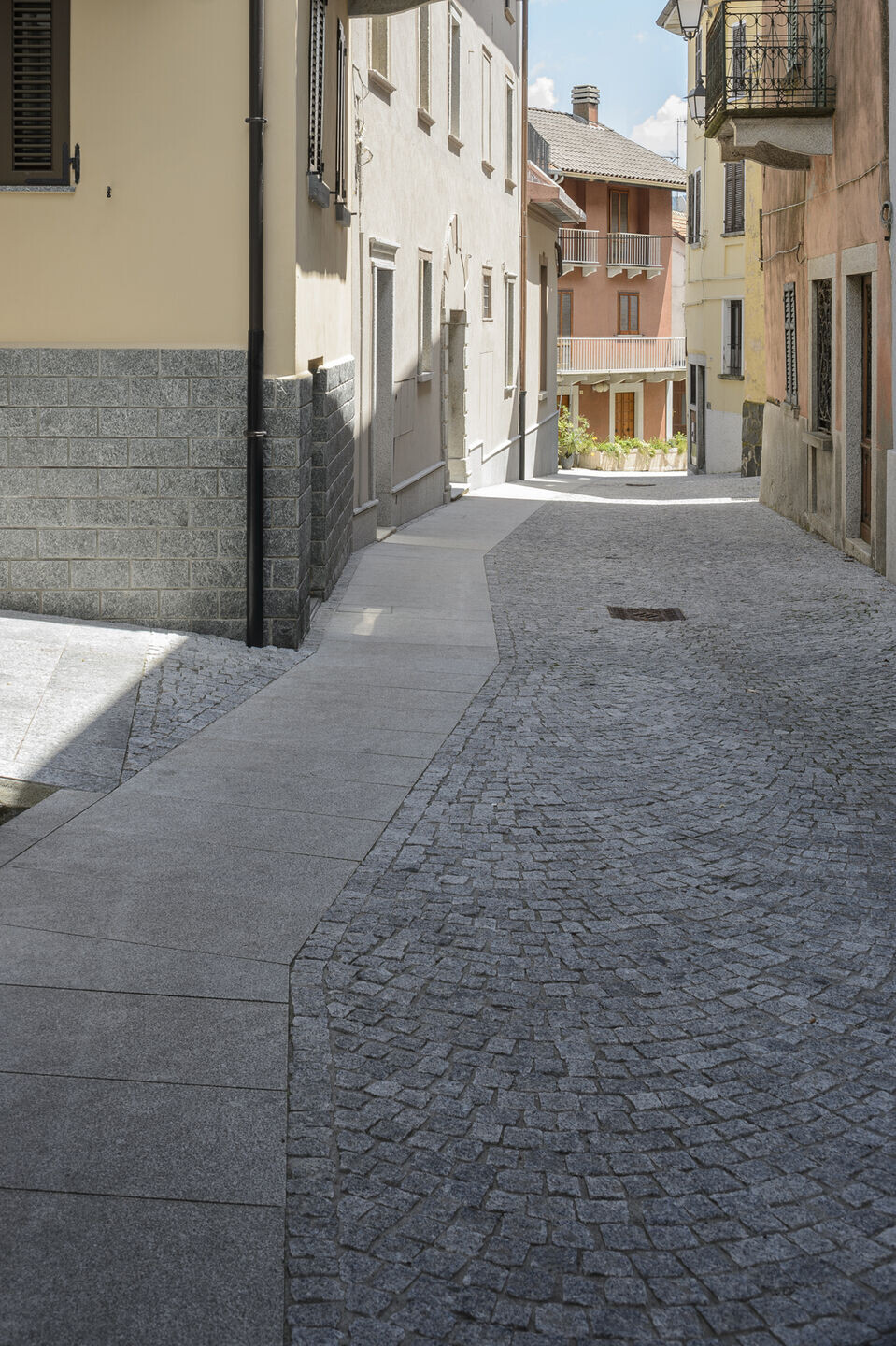
The sloping course of the street gives a constant variation in bench heights from 40 tu 90 cm high, as in often the case in mountain streets. A linear light laid on the groundward side of the seating slab reveals in the evening hours the structure of the artifact as an evocative place. A place, by the way, already recognized as a peculiar in a 1934 painting by Antonio Calderara ("Piazzetta di Pella").
